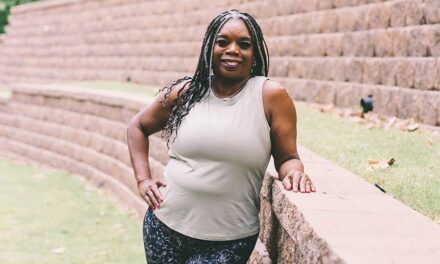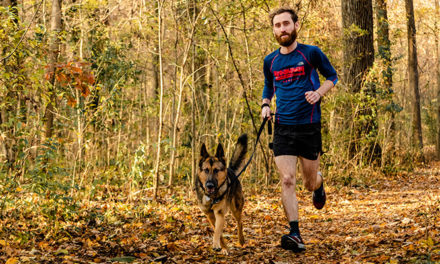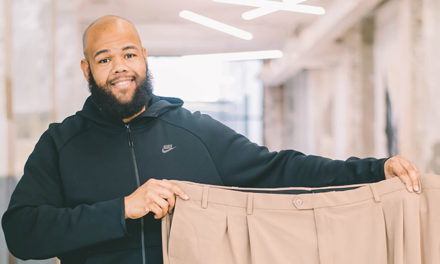Richard Murphy, 51, has footprints all over the Memphis area. He logs 50 to 75 miles per week training for ultra races that surpass the standard 26.2-mile marathon. Richard is always up for going the distance as a runner, father of two, volunteer for West Cancer Foundation, and employee at Church Health.
Discovering the Magic of Running
A lifelong athlete, Richard played collegiate soccer and competed in triathlons when he was in graduate school for exercise science. “I quickly realized that triathlon training took too much time on top of balancing school and life. I read about the Badwater Ultramarathon, a notoriously challenging 135-mile race, and my interest in ultra-distance running was peaked,” he explains.
Around this time, Richard lost a good friend to cancer. “Running gave me alone time to process my thoughts. It was important for my mental health to take that time for solitude and tune out external thoughts. “People ask me, ‘How do you run for hours and hours at a time?’ But that time gives me the mental space to go within.”
Implementing Smart Recovery
With an extensive training regimen, Richard has to be very aware of his output. About five years ago, he got a severe case of shingles—brought on by the stress of an overloaded schedule. “Between balancing work, family, and running, my body was depleted. I needed to figure out how to continue at a high level, have any kind of life, and still be able to function.”
Richard introduced two pillars into his training routine. The first is maintenance, and the second is scheduling. Maintenance includes strength training, yoga, easy runs, and good nutrition. It is key for him to give his body time to heal. He also created a diligent schedule. Before, Richard was running hard almost every day of the week, but now it’s a mix of hard and easy days.
With this approach, he has logged even more miles than he was doing five years ago, but he doesn’t have health issues. “I’m doing a lot more work, but I recover much better,” he reflects.
Polarized training is a key component of his success. This means 80% of his workouts are low intensity and 20% are high intensity. To avoid common running injuries, Richard works with 901 Physical Therapy. “If you do something often enough, you will end up with an injury. Working with physical therapists allows me to dial in areas like small muscles in the foot, calf, or ankle to prevent injury.”
Running as a Pack
For the first 15 years in his sport, Richard ran on his own. He slowly found his way to group running, which he has enjoyed during the subsequent 15 years of his running career. Now he’s part of Memphis Wolf Pack. “We run together three to four times a week. We encourage each other and hold one another accountable. The camaraderie motivates me to keep showing up.”
Spending time in the community is important to the Memphis Wolf Pack. They attend local races as well as volunteer to train children and young adults. “I love coaching kids because it exposes them early to running and encourages them to have fun. They learn to work as a team and may even find a love for the sport that lasts their entire life,” Richard says.
Richard’s charity work extends beyond running. He’s also an avid volunteer with the local nonprofit West Cancer Foundation, which invests in research and education, supports cancer patients, and promotes the health of the community.
As a committee member for the West Fight On 5K for the last three years, his inspiration for running has come full circle. Being a part of it lets him honor his friend that he lost to cancer, which was a catalyst that kicked off his love for the sport.
Keep Going
This month, Richard participates in Run Under the Stars, which lasts from 8 pm to 6 am. Athletes are challenged to run as far they can around a half-mile track. As an eight-time veteran, he’s has won eighth place for overall mileage. He’s even more excited for this year since it was canceled in 2020.
Long term, Richard hopes to break the Tennessee state marathon record for his age group. To beat it, he will need to run the course in 2:55, which is about 1:20 faster than the average male in the 50–54 age group (according to Healthline). He’ll take his shot in 2022 at the Mississippi River Marathon—which he humbly describes as “flat and fast.” With his unwavering tenacity, sound strategies, and good vibes—we have no doubt Richard will be zooming past records by next year.
By Morgan Stritzinger
Photo by







